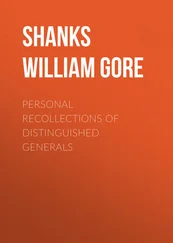Probably meant here is Burkhart Freiherr Loeffelholz von Colberg (6.5.1913–30.10.2000), who served in North Africa, latterly as Ia, 334.Inf.Div. He was flown out of Tunisia, then occupied various Staff positions, ended the war as Oberstleutnant and served with the Bundeswehr until 30.9.1971, retiring in the rank of Oberst.
Generalmajor Martin Lattmann (10.2.1896–11.8.1976) was captured at Stalingrad as CO, 14.Pz.Div. From 25.8.1940 to 15.4.1942 he was CO, Training Staff, Artillery School Jüterbog (from 26.1.1942 Artillery School II) and as such was responsible for the weapons training courses for young officers and applicants for the officer-reserve. Lattmann was decried as a ‘wild Nazi general’ but went through an ideological volte-face in captivity, joined the anti-Nazi Bund Deutscher Offiziere and took up a position on its left wing. After the war he served as a Generalmajor of the Volkspolizei at the DDR Interior Ministry and was active for various economic commissions. Frieser, ‘Krieg hinter Stacheldraht’, pp. 193, 371.
Between 8.2.1942 and 28.4.1942 at Demyansk, around 100,000 German soldiers remained encircled until 16.Armee opened a corridor for them; the then Generalleutnant Walther von Seydlitz-Kurzbach commanded the relief units from X.Armeekorps. ‘Das deutsche Reich und der Zweite Weltkrieg’, Vol. 4, pp. 639–41.
Tschugujew, city on the Severny Donetz.
Kharkov in the Ukraine.
Meant here is Oberst Hans Lattmann (b. 24.12.1894), summer 1944, Artillery Staff Officer, Army Group B. Lattmann was once assessed by Rommel as a ‘convinced National Socialist’ and so the statement he made to Beck is all the more interesting.
For Dietrich see note 91 91 Oberstgruppenführer Sepp Dietrich (28.5.1892–21.4.1966); from March 1933 Chief, Stabswache, Reich Chancellery (from September 1933 Leibstandarte Adolf Hitler ). Dietrich was involved in the Röhm putsch murders, later became CO, SS-Div. Leibstandarte Adolf Hitler as career officer; 27.7.1943 CO, 1.Pz.Korps, which also fought in Normandy; 5.11.1944 CO, 6.SS.Pz.Armee; 6.8.1944 awarded Diamonds. See Clark, ‘Josef Sepp Dietrich’, see also Document 159.
above.
Generalleutnant Hans Speidel (28.10.1897–28.11.1984), from 14.4.1944–5.9.1944 Chief of Staff, Army Group B in France. He had prior knowledge of the 20 July plot and was arrested on 5.9.1944, but skilfully avoided incriminating himself and remained in detention until the war ended.
Oberst Hans-Jürgen Dingler (b. 30.3.1904), from 12.2.1944 to 4.1945 Chief of Staff, LVIII.Res.Pz.Korps. Postwar with West German Intelligence Gehlen/BND.
General der Panzertruppe Walter Krüger (23.3.1892–11.7.1973), Cmmdg Gen. LVIII.Res.Pz.Korps, was a highly decorated panzer leader who probably from his time as regimental commander in 1937 onwards had gained general ideas from Beck. It is not proven that they were any closer than this.
For Bayerlein see note 225 255 Nothing else is known about the engagement of partisans by Spang’s 266.Inf.Div. See Introduction, note 223 223 He reported on the anti-partisan war at GRGG 172, 8–12.8.1944, TNA WO 208/4363. The 266.Inf.Div. War Diary has no valuable information about engagements between the Division and partisans. BA/MA RH26-266-9 (June – July 1944). .
above. Fritz Bayerlein was awarded the Swords to his Knight’s Cross on 20.7.1944. With his Pz.Lehr.Div. he had fought off numerous American attacks west of St Lo from 11 July. This may explain why he was in such good spirits at that point. A few days later the American Great Offensive crushed his unit. On 27.7.1944 he reported that his division had been wiped out. Ritgen, ‘Panzer Lehr Division’, pp. 155–70.
The date of these talks is unknown. Ritter mentions in his biography of Goerdeler that Choltitz spoke with him in March 1944. At the time Choltitz was a corps commander in Italy, therefore it is more likely that the meeting occurred between 16.4.1944 and 13.6.1944, when Choltitz was in the OKH Führer-Reserve. The detailed knowledge that Choltitz possessed of the course of the event is astonishing. Probably he had obtained the information from his Staff in Paris, who were in on the secret. Another source alleges that before the attempt in July 1944, Choltitz already knew everything about it. Oberleutnant Curt Vogel reported on a conversation between Choltitz and Generalmajor Eugen König, CO, 91.Luftlande-Div. (BA/MA MSg 1/647 and 2579).
General der Infanterie Friedrich Olbricht (4.10.1888–20.7.1944), from 15.2.1940 Chief of Army General Bureau.
Carl Goerdeler (31.7.1884–2.2.1945), 1930–37 Oberbürgermeister, Leipzig. Envisaged as Reich Chancellor in the event of a successful coup.
General der Nachrichtentruppe Erich Fellgiebel (4.10.1886–4.9.1944), from August 1938 Chief of Army Signals and Chief of Wehrmacht Signals Links at OKW, an early recruit to the Resistance. His task on 20.7.1944 was to cut off the signals systems at FHQ. He was arrested the next evening.
After 20.7.1944 Zeitzler was not sought out despite many lingering suspicions. Stahl, ‘Zeitzler’, p. 289.
See Document 32.
Meant here is lawyer Hans-Bernd von Haeften (15.12.1905–15.8.1944), from 1934 diplomatic service; 1940 Deputy Leader, Cultural Political Dept, Foreign Ministry. He was a member of the Kreisau circle and was earmarked for State Secretary at the Foreign Ministry should the coup have been successful. Arrested 20.7.1944, executed at Berlin-Plötzensee prison.
Estimates of the numbers executed in the wake of 20 July vary. Hoffmann writes of between 600 and 700 persons arrested, about 200 tried and executed. There were in addition to these an unknown number of semiofficial and unofficial executions. Hoffmann, ‘Staatsstreich’, p. 652.
Generaloberst Erwin Jaenecke (22.4.1890–3.7.1960), from 1.6.1943 C-in-C 17.Armee (Caucasus and latterly Crimea), advised Hitler on 29.4.1944 in two verbal reports to abandon Sebastopol and allow his reduced Army the opportunity to retreat. He had the full agreement of Zeitzler, Chief of Army General Staff, and Heusinger, Chief of Operations Division, for his plan. Jaenecke described the catastrophic situation in an emotional manner and hammered the map table repeatedly. The second conference in the evening was even more tense. While returning to the Crimea he received the report that Hitler had relieved him of command and replaced him with his former Chief of Staff, Allmendinger. Jaenecke was expressly forbidden to return to the Crimea. A pre-court-martial investigation came to nothing. On 31.1.1945 he was discharged the Wehrmacht. KTB note on journey, C-in-C to FHQ, BA/MA RH20/17-270. Meanwhile Goerdeler had attempted to recruit Jaenecke for a conspiracy involving front commanders and the General Staff. Jaenecke supported the plan but contributed nothing. During their investigations of 20 July plot, the Gestapo came across his name on numerous occasions, and he was interrogated for eight hours in September 1944, RSHA concluding that he was not involved. Ritter, ‘Goerdeler’, p. 383; Jaenecke to Xylander, 4.11.1944, BA/MA N761/4. The few letters in his literary bequest leave no impression of an especially realistic appraisal of the strategic situation, nor of an even peripheral supportive stance for the opposition. On 24.2.1944 he wrote to his former commanding officer, Generaloberst Blaskowitz, ‘I still cannot imagine that the British and Americans are so stupid that they will do the Russians’ work for them and give the Bolshevists in Europe a leg-up into the saddle. On the other hand the Jews’ hatred is probably so great that all reasonable considerations take a back seat’, BA/MA N761/4. Pfuhlstein reported at Trent Park that at Olbricht’s instigation he had spoken to Heusinger and Zeitzler’s adjutant in order to gauge the extent of Zeitzler’s disillusion with Hitler. He had been told that Zeitzler was not yet ‘ripe’ to be indulged regarding the plans for a coup. GRGG 285, TNA, WO 208/4177.
Читать дальше
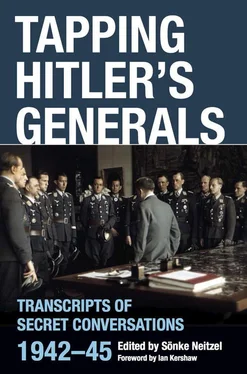

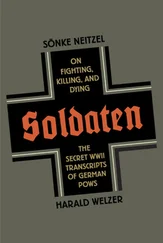
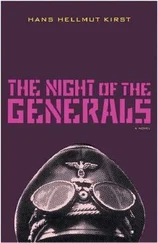


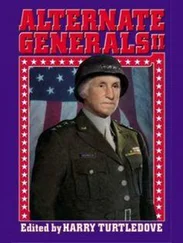

![Traudl Junge - Hitler's Last Secretary - A Firsthand Account of Life with Hitler [aka Until the Final Hour]](/books/416681/traudl-junge-hitler-s-last-secretary-a-firsthand-thumb.webp)



